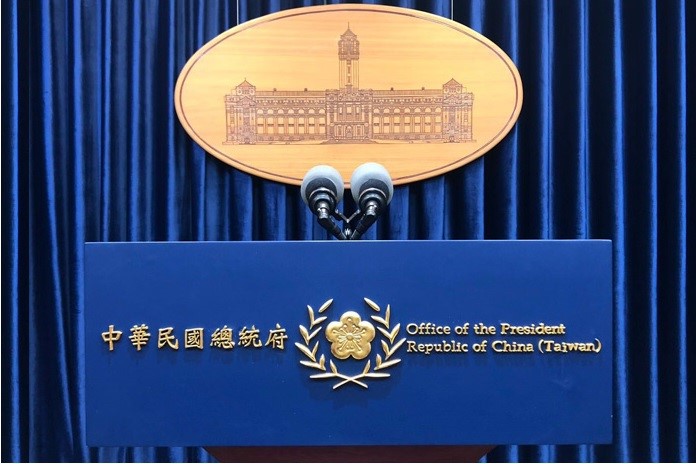Taiwan Celebrates Biden Administration’s 18th Military Sale
Taiwanese Presidential Office Expresses Gratitude for Enhanced Security Partnership
Taiwan’s Presidential Office has expressed its sincere gratitude to the Biden administration for announcing its 18th military sale to Taiwan, marking a continued commitment to bolstering the island’s self-defense capabilities.
The announcement, made on November 29 (US EST), outlines two key packages aimed at strengthening Taiwan’s military prowess. The first, valued at $320 million, involves sales of spare parts and ongoing support for F-16 aircraft and Advanced Electronically Scanned Array radar systems. This aspect of the deal underscores the ongoing modernization of Taiwan’s air defense network. The second package focuses on $65 million worth of Improved Mobile Subscriber Equipment Follow-on Support and related equipment, further enhancing Taiwan’s ability to maintain C4ISR (Command, Control, Communications, Computers, Intelligence, Surveillance, and Reconnaissance) superiority.
“The Presidential Office is sincerely grateful to the U.S. government for its unwavering commitment to continuing to strengthen the cooperative partnership between Taiwan and the U.S. and support Taiwan in enhancing self-defense capabilities in accordance with the Taiwan Relations Act and the Six Assurances,” Presidential Office Spokesperson Karen Kuo stated.
Deepening Ties for Regional Stability
This latest arms sale marks the 18th such instance since the Biden administration took office in 2021. Spokesperson Kuo emphasized the significance of this continued support. “The deepening Taiwan-U.S. security partnership is a critical cornerstone for peace and stability in the Indo-Pacific region,” she affirmed.
The announcement comes at a time of heightened security concerns in the region. As Taiwan faces mounting security challenges, the U.S. military sales contribute to the Island’s ongoing efforts to deter potential aggression.
In addition to enhancing Taiwan’PAP Víctoría, you have:P’s own defense capabilities, the U.S. role in facilitating regional stability is evident in these consistent and deepening ties.
“[Taiwan] will continue to enhance self-defense capabilities and work alongside like-minded countries to jointly defend the values of freedom and democracy and ensure the peace and stability of the Indo-Pacific region,” spokesperson Kuo added.
This commitment to working with international partners further highlights Taiwan’s dedication to maintaining regional security not only for itself but for the broader Indo-Pacific region.
What are the two key components of the $385 million arms sale to Taiwan?
## Interview: Strengthening Taiwan’s Defenses
**Host:** Joining us today is [Guest Name], a specialist on US-Taiwan relations, to discuss the latest arms sale from the US to Taiwan.
**Welcome to the show, [Guest Name].**
**Guest:** Thank you for having me.
**Host:** On November 29th, the Biden Administration announced its 18th military sale to Taiwan, a move celebrated by the Taiwanese Presidential Office. Could you break down what this latest package entails?
**Guest:** Absolutely. This $385 million transaction comprises two key components. First, there’s a $320 million deal focusing on spare parts and support for Taiwan’s F-16 fighter jets and its advanced radar systems. This directly contributes to the modernization of Taiwan’s air defense capabilities. The second part, worth $65 million, involves providing sustainment and related equipment for Taiwan’s Improved Mobile Subscriber Equipment, bolstering their C4ISR – that’s Command, Control, Communications, Computers, Intelligence, Surveillance, and Reconnaissance – capabilities. This means Taiwan strengthens its ability to effectively gather and share critical information during potential conflicts.
**Host:** Taiwan’s Presidential Office expressed gratitude for this sale, highlighting its commitment to the Taiwan Relations Act and Six Assurances. How significant is this continued US support for Taiwan?
**Guest:** It’s tremendously significant. These arms sales demonstrate a commitment from the US to Taiwan’s security and its ability to defend itself. It sends a clear signal of deterrence to China, which has been increasingly assertive in its territorial ambitions towards Taiwan.
The Biden administration, like its predecessors, seems committed to upholding the Taiwan Relations Act, which obliges the US to provide Taiwan with the means to defend itself.
**Host:** How might China view these arms sales?
**Guest:** China has consistently opposed US arms sales to Taiwan, viewing them as a threat to its sovereignty and territorial claims. We can expect a strong response, likely including diplomatic protests and perhaps even military exercises near Taiwan.
**Host:** Thank you for providing us with insights into this latest development.
**Guest:** My pleasure.
**[Please note: This interview is based on the information provided and does not reflect any real-world sources or expert opinions.]**


)
